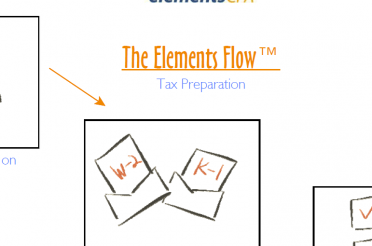 Important tax changes took place for 2021, and it’s quite possible there’s more coming mid-season. We’ve highlighted key changes for both businesses and individuals below, plus included our extensive checklists to help you prepare for your tax interview. At the end, we’ve provided a collection of tax help tools like looking up your refund status, locating your online IRS Account, requesting a tax extension, and more.
Important tax changes took place for 2021, and it’s quite possible there’s more coming mid-season. We’ve highlighted key changes for both businesses and individuals below, plus included our extensive checklists to help you prepare for your tax interview. At the end, we’ve provided a collection of tax help tools like looking up your refund status, locating your online IRS Account, requesting a tax extension, and more.
Business Tax Tips 2021
- Business loss limitations — One of the biggest changes starting in 2021 and extending through 2025 is the limit on the ability to claim a loss from a business. To the degree the business loss is greater than $262,000 (or $524,000 for MFJ), it will have to be capped and the excess carried forward following the Net Operating (NOL) rules.
- 100% business meal deduction — On the positive side, 2021 and 2022 are two years for which buying meals with a business purpose from a restaurant qualifies for a 100% deduction (instead of the normal 50%). IRS guidance further stated that if food is mixed-in with entertainment costs (which are not deductible at all), having the food separately stated on the bill will enable the full deduction.
- PPP, EIDL Advance, + Others — 2021 business returns will continue to see the shadows of business COVID relief, such as PPP loans being forgiven, state & local grants received, and EIDL Advance funds arriving. Presuming the proper criteria were met, much of the federal programs are fully excludible from income. State & local programs can vary. So it remains critically important to properly segregate these transactions in your business’ books and mention during your tax interview to be sure you get the most advantageous treatment.
- Tax-free Educational Assistance — In addition to providing $5,250 in qualifying education benefits tax-free to employees, between 2021 to 2025 employers can now pay their employee’s student loan interest and principal and have it be a tax-free benefit to them.
- Social Security Deferral — Don’t forget that if your business took advantage of the program to defer the payment of Social Security taxes from 2020, half the deferred amount was due by December 2021 and the other half is due by December 2022. Instruction letters were sent out and the payments need to be made through a special process on EFTPS (rather than mixed in with regular payroll payments).
Individual Tax Tips 2021
- Charitable deduction for non-itemizers — In a slightly different method than that for 2020, non-itemizers are still able to claim $300 in charitable contributions ($600 for MFJ). Also unique to 2021, charitable contributions can offset your entire income (instead of a max of 50%/60% of income).
- Child Tax Credit confusion — For 2021 only, the Child Tax Credit was increased to $3,000 per qualifying child and expanded age year to include 17-year olds. For children under 6, the credit is an even higher $3,600 per child. Part of the confusion, however, will be that many taxpayers received advanced payments of some of this credit the latter half of 2021 – so it’s critical to keep the letter the IRS sent you in January to ensure we know what’s left. (Note that for 2022 under current law, the Child Tax Credit goes back to its normal $2,000 per child aged 16 or less.)
- Student loan debt forgiveness — There’s a lot of political pressure currently for student lenders to write-off all or parts of outstanding student loans. Normally any cancelled debt translates into taxable income, but for tax years 2021 to 2025 any forgiven student loans are not taxable, which is a nice benefit.
- One more stimulus check — It’s hard to keep track, but there was a third stimulus check that was sent out in 2021 as an advance on your 2021 taxes. Of the stimulus checks sent, it was the most generous at $1,400 per taxpayer and dependents listed on the return, regardless of age. So depending any changes in income and persons listed on your return, you may qualify for an additional amount when filing your 2021 taxes. (Note: The stimulus fully phases out at $80k for Single and MFS statuses/ $120k for HOH status/ and $160k for MFJ status.)
- Home energy efficiency tax credit — In an on-again/ off-again tax provision, the energy efficiency property tax credit is back through 2023. If you’ve used this credit in the past there’s a good chance you’ve maxed it out since it has a lifetime cap, but if you haven’t and you improved windows, doors, insulation, heat/AC, or similar (not appliances), be sure to supply the dollar amount so our team can save you a few hundred off your bottom line.
- Flexible Spending Account (FSA) flexibility — Historically FSAs were known for their ‘use-it-or-lose-it’ provision, but Congress has been relaxing the rules in the recent tax law changes and now you can fully carry forward any unused amount from 2021 into 2022 — so the pressure is off. Further, the list of qualifying medical costs that can be used for FSAs and HRAs has been growing to include over-the-counter medication, menstrual products, COVID personal protective equipment, and more. So be sure to get as much benefit from the funds as possible.
- Expanded Childcare Credit — Just for 2021, eligible expenses for the childcare credit jumped from $3,000/child up to $6,000 for two children, to a new higher level of $8,000/child up to $16,000 for two children. Further, the allowable percentage was increased and the phase-out range relaxed. So be sure to gather together statements from childcare providers as the amount of this credit may be worth significantly more than in years past.
- Retirement account miscellany — A few miscellaneous provisions to be aware of: (a) Required Minimum Distributions are back for 2021 after their hiatus in 2020, (b) if you did a special COVID withdrawal from your retirement plan in 2020 with intent to recontribute or spread the income, be sure to let us know, and (c) don’t forget that anyone with earned income regardless of age can now contribute into Traditional IRAs (previously there was an age cap at 70.5).
Helpful Checklists for Businesses & Individuals
When it comes to business finances and taxes, checklists are really the only way to be sure you’ve completed what’s needed and there’s not something missing which is going to cause you a problem down the road. Here’s our checklists honed over years that you can use to get yourself ready and trigger relevant topics to bring up during your tax interview:
- Year-end Business Book Closing Checklist — Following a strong year-end routine to close your books for the year means you won’t carry any costly number messes into 2022 and you’ll have optimized your figures for taxes for 2021. Download this checklist and run through before your business tax interview to avoid delays due to books that need to be cleaned up before anything can be done.
- Business Pre-Appointment Checklist — Business owners should be sure to scan through this checklist before your business tax interview to ensure you’ve gathered everything you should have at hand and to identify areas to bring up related to your activity for the year.
- Individual Pre-Appointment Checklist — Just like the business-equivalent checklist above, this checklist should be used for your personal return to address all the areas unique to individual sources of income, deductions, and more. There’s even a space for you to list out your questions at the end so nothing slips through the cracks and you can have a strong personal tax interview.
Useful Tax Tools for 2021
In addition to the checklists above, here’s a great compilation of useful tips for all things related to filing 2021 tax returns:
- Visit your IRS Online Account — Relatively new, the IRS has been expanding taxpayer’s ability to lookup their account history, access basic information like what advanced tax credits were received, and more. Activating and using your IRS Online Account can save what in the past would have involved a lot of paper shuffling and phone calling.
- Protect yourself from Identity Theft — Recently have your identity stolen? Or want to be proactive from someone fraudulently filing a tax return under your name and SSN? You can register with the IRS for an “IP PIN” (Identity Protection PIN) where they physically mail you each January a six-digit code that must be included with an e-filed return using your SSN in order to be accepted by the IRS.
- Check your refund status — Return already filed and wondering when to look out for your refund? Visit our Where’s My Refund? post for links to federal and state tax agency lookup pages and be sure to have your tax return on hand to fill-in the prompts.
- Pay your taxes online — Do you owe? We highly recommend you send your payment via the government agency’s website rather than try to mail a check (which can get easily lost, delayed processed, or mis-applied). Key online payment sites include IRS Direct Pay, Maryland individual, District of Columbia individual, Virginia individual, California individual, and Pennsylvania. (Related, here are the links for first quarter estimated payments.)
- Extend your tax return — All Support and Active Members will have their return extended for them automatically if needed, but other Member levels can still request our team extend your return for you for a nominal price. Alternatively, you can self-file your extensions following the guidance we provide in our Filing Tax Extensions post.
- Secure upload tax documents to your e-Cabinet — Before your tax interview, be sure to have securely uploaded copies of the tax documents you’ve gathered to your personal e-Cabinet to avoid a delayed start or the need to reschedule your tax interview.
- Cut-off dates — February 25 is the cut-off for the last piece of information to complete S-corp and Partnership returns due on March 15. March 25 is the cut-off for Individual and C-corp returns due April 15. And April 29 is the cut-off for Exempt Organization returns due May 15.
- Up-to-the-minute developments — Any major tax legislation or procedure changes are shared in real-time on our Twitter feed, so if you catch wind that something seems to be going on, or just want to see a rundown of tax developments happening mid-stream, be sure to scroll through our Twitter feed for the latest. (We’ll also post about large legislation changes on our blog should they happen.)
Our Philosophy: Good Tax Design is Simple & Money-Saving
In our approach, achieving an Optimized Tax for entrepreneurs starts with a smart tax plan, continues with a mid-year tax projection, and culminates with collecting the issued forms and finalizing the numbers we’re already expected, no surprises.
With a good tax design and simple habits, tax day becomes a non-event and saves you and your business money. If you’d like to experience an Optimized Tax too, just reach out to setup your personal Coffee Conversation with our team.







